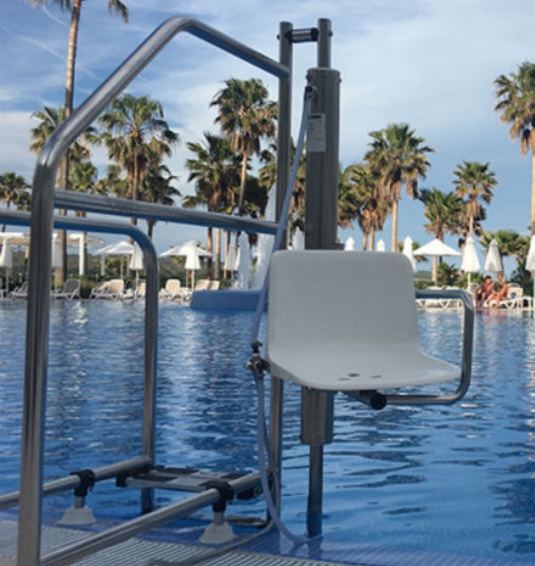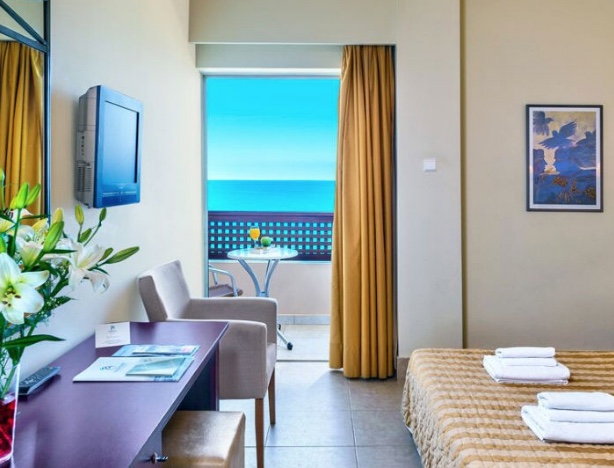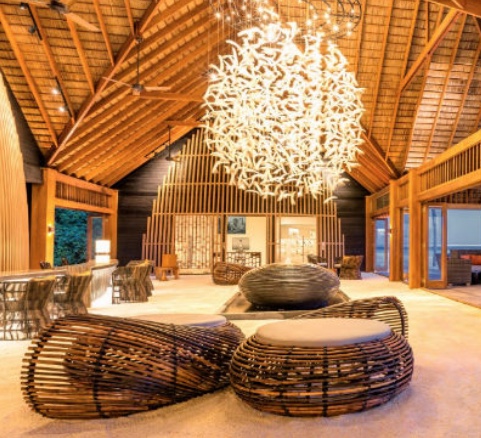Listen Up Hoteliers – Why You are Failing Your Disabled Guests – And How to Do Better
Bespoke Hotels
By Robin Sheppard, Executive Chairman of Bespoke Hotels, and co-founder of the Bespoke Access Awards
Hoteliers are getting it wrong when it comes to providing for guests with a disability. I know because I was one of them. More than a decade ago, I was diagnosed with Guillain-Barré syndrome, a condition that causes the immune system to turn on itself, sparking progressive muscle weakness. I was paralysed from the neck down, and while I am grateful to have made a substantial recovery, the experience has left me changed forever. Having been on the inside of disability, I have a vision for our industry to do better. I am passionate about the need for change in hotels and I am an advocate for innovative ideas, fresh thinking and design to improve both the image and the user-friendliness of disabled hotel rooms.

Hotels need to be upfront and inclusive from the get go—it’s the right thing to do and it’s pure and simple good business. The spending power of the households of more than 11 million disabled people in the UK is estimated at upwards of £250 billion.
When I refer to accessibility, this is not an issue that affects just wheelchair users. Anyone who occasionally relies on a walking stick, or struggles with a long flight of stairs for a myriad of reasons, or deals with sight or hearing issues, knows how challenging travel can be, and hotels in particular are a big part of the problem. Even when hotels offer “accessible” rooms, these are often sterile, over-medicalised and soulless, with inferior views or none at all; true accessibility means more than installing a smattering of ramps and rails.
Compounding the issues with physical design, there are consistently problems with inadequate staff training, evidenced by a lack of compassion and understanding for those with special needs. In fact, the biggest complaint from disabled travellers isn’t physical features and awkward architecture, it’s poor staff training. More and more disabled travellers say that better staff training would significantly improve their experience. In fact, many are willing to overlook architectural foibles if the service they receive meets their needs.

There is much to be done and the evidence is clear. Seventy-two percent of disabled travellers have recently visited hotels that failed to meet their needs. It begins with a dialogue; disabled guests should be listened-to in order to gain a fundamental understanding of what is required. The Equalities Act suggests that companies include input from a disabled person when creating design, rather than relying purely on architects, designers and builders, to get it right in a way that works for everyone.
But before a single architectural change is made, inclusivity must begin on your website. Hotels need to do better at explaining accessibility, as people with disabilities often find shockingly little online with which to judge whether a hotel will be suitable. Only ten percent of disabled guests feel they receive sufficient information about facilities at the time of booking.
At Bespoke Hotels our overarching aim is to improve access to products and services, providing equal opportunities for everyone. This may come in the form of staff members who are disability confident and properly trained, intelligent design, or simply accommodation that doesn’t fall into the trap of becoming joylessly hospital-like. However it manifests, we must endeavour to put inclusivity at the heart of everything we do, ensuring hotel properties across the UK are open and accessible to all.

It is a sad reality that disability can dampen enthusiasm for travel, due to a fear of imposing one’s needs on others. So whether it’s a tastefully accessible entrance, a considerately located parking space, a kitchen team comfortable with specific dietary requirements, or simply the layout of the furniture in your room, there’s nothing better than feeling truly respected from the moment you check in.
It is my ultimate goal that hotel guests view a disabled room as an upgrade. Ultimately, it all comes down to prioritising the customer and putting ourselves in their shoes. Given that the global hotel industry boasts some of the finest service professionals in the world, I have no doubt we are up for the challenge.

